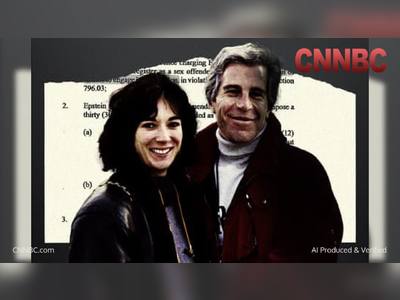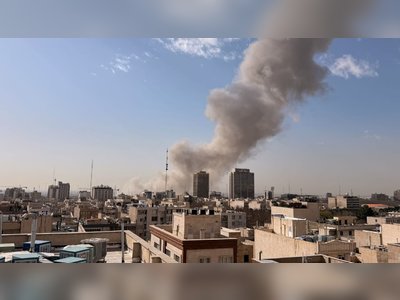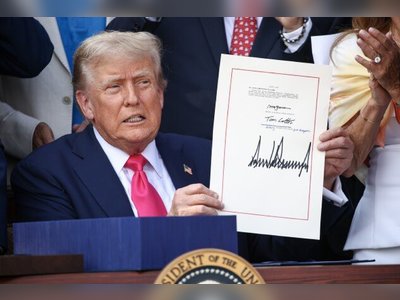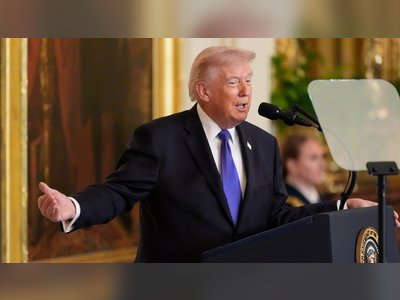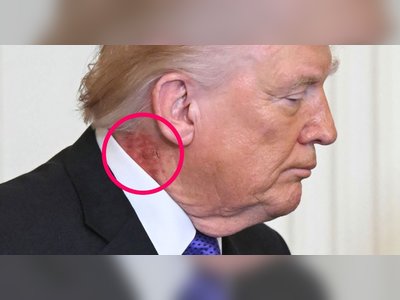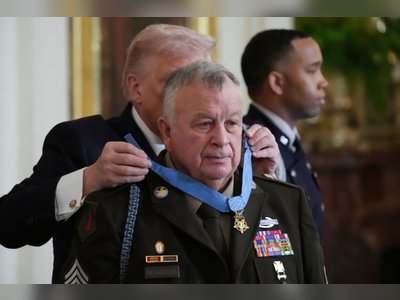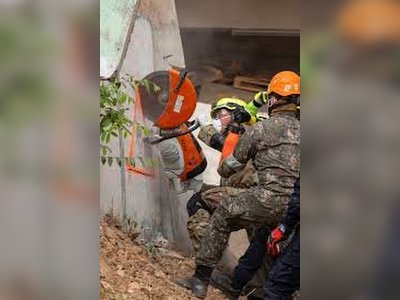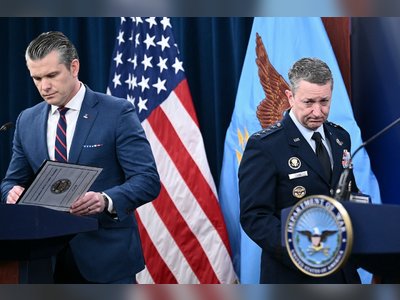
Key Ceasefire Agreement Reached Between Israel and Hamas After Prolonged Conflict
Breakthrough achieved in Doha: Promises of hostages' release and humanitarian aid to Gaza as global leaders react.
In a significant diplomatic breakthrough, a ceasefire deal between Israel and Hamas has been announced, bringing a pause to the prolonged and devastating conflict in the Gaza Strip.
This development marks a potential turning point after 15 months of fierce fighting, casualties, and regional instability.
The agreement was confirmed on Wednesday evening in Doha, Qatar, where negotiations have been intensively conducted over the past weeks.
Mediators have confirmed that the deal will commence on Sunday and includes vital components like the release of hostages held by Hamas and Palestinian prisoners in Israeli custody.
In addition, provisions for allowing displaced Palestinians to return to their homes, and the influx of humanitarian aid into Gaza have been highlighted.
American President Joe Biden endorsed the deal, stating that the ceasefire would halt hostilities, provide essential humanitarian relief to Palestinian civilians, and facilitate the reunion of hostages with their families.
Biden also confirmed that Americans would be among the first wave of hostages to be released.
Egyptian President Abdel Fattah al-Sisi revealed efforts were in motion to maximize the delivery of aid into Gaza, coordinating to open the Rafah border crossing to enable the flow of international humanitarian support.
The Israeli cabinet is expected to convene on Thursday to finalize the approval of this landmark deal.
The majority vote within Israel’s security cabinet seems likely to support the agreement successfully.
A myriad of international responses has emerged as leaders react to the ceasefire news.
UK Prime Minister Keir Starmer described the development as long overdue, emphasizing the need for a surge in aid and a commitment toward achieving a two-state solution for lasting peace.
The United Nations highlighted the necessity for rapid and unrestricted aid access to alleviate the suffering of Gaza's civilians.
Despite the positive reception of the agreement, questions loom regarding the long-term governance and reconstruction efforts for Gaza, further releases, and whether the ceasefire will translate into enduring peace.
Skepticism exists among Israeli political circles, particularly from right-wing figures who have voiced ongoing support for military actions.
Outgoing President Donald Trump promptly claimed partial responsibility for the ceasefire in his statements, underscoring perceived contributions to this diplomatic outcome.
Meanwhile, Turkish President Recep Tayyip Erdoğan reiterated support for peace efforts and indicated a commitment to helping reconstruct Gaza.
Amidst the diplomatic dialogues, families of hostages expressed a mix of cautious optimism and persistent uncertainty regarding the ceasefire, highlighting past setbacks in reaching lasting agreements.
Committees dedicated to the protection of journalists have called for efforts to investigate and prevent media-targeted violence throughout the conflict period.
Regional and global actors have acknowledged the potential of the agreement to herald a definitive end to the war, yet the path remains intricate and contingent on successful execution of the ceasefire’s phases.
As the international community directs attention to the arrangement’s implementation, there is a united call for substantive rebuilding and reconciliation efforts to follow.
This development marks a potential turning point after 15 months of fierce fighting, casualties, and regional instability.
The agreement was confirmed on Wednesday evening in Doha, Qatar, where negotiations have been intensively conducted over the past weeks.
Mediators have confirmed that the deal will commence on Sunday and includes vital components like the release of hostages held by Hamas and Palestinian prisoners in Israeli custody.
In addition, provisions for allowing displaced Palestinians to return to their homes, and the influx of humanitarian aid into Gaza have been highlighted.
American President Joe Biden endorsed the deal, stating that the ceasefire would halt hostilities, provide essential humanitarian relief to Palestinian civilians, and facilitate the reunion of hostages with their families.
Biden also confirmed that Americans would be among the first wave of hostages to be released.
Egyptian President Abdel Fattah al-Sisi revealed efforts were in motion to maximize the delivery of aid into Gaza, coordinating to open the Rafah border crossing to enable the flow of international humanitarian support.
The Israeli cabinet is expected to convene on Thursday to finalize the approval of this landmark deal.
The majority vote within Israel’s security cabinet seems likely to support the agreement successfully.
A myriad of international responses has emerged as leaders react to the ceasefire news.
UK Prime Minister Keir Starmer described the development as long overdue, emphasizing the need for a surge in aid and a commitment toward achieving a two-state solution for lasting peace.
The United Nations highlighted the necessity for rapid and unrestricted aid access to alleviate the suffering of Gaza's civilians.
Despite the positive reception of the agreement, questions loom regarding the long-term governance and reconstruction efforts for Gaza, further releases, and whether the ceasefire will translate into enduring peace.
Skepticism exists among Israeli political circles, particularly from right-wing figures who have voiced ongoing support for military actions.
Outgoing President Donald Trump promptly claimed partial responsibility for the ceasefire in his statements, underscoring perceived contributions to this diplomatic outcome.
Meanwhile, Turkish President Recep Tayyip Erdoğan reiterated support for peace efforts and indicated a commitment to helping reconstruct Gaza.
Amidst the diplomatic dialogues, families of hostages expressed a mix of cautious optimism and persistent uncertainty regarding the ceasefire, highlighting past setbacks in reaching lasting agreements.
Committees dedicated to the protection of journalists have called for efforts to investigate and prevent media-targeted violence throughout the conflict period.
Regional and global actors have acknowledged the potential of the agreement to herald a definitive end to the war, yet the path remains intricate and contingent on successful execution of the ceasefire’s phases.
As the international community directs attention to the arrangement’s implementation, there is a united call for substantive rebuilding and reconciliation efforts to follow.

